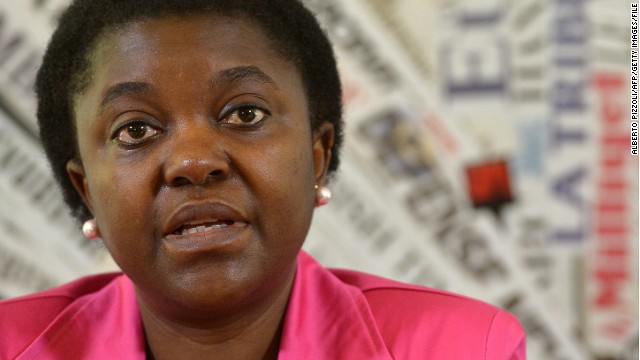The
Yale Club of Ghana Conference
“From
Success to Significance”
Accra,
Ghana
July
19, 2013
by Daniel Rose, Yale ‘51
To
the development world, Africa is the future.
The
necessary ingredients for healthy and sustainable growth are visible; now
private sector entrepreneurial talent—working with and through government—must
bring them to fruition. Small and
medium-sized businesses created and led by imaginative and innovative risk-takers
with their own funds invested will be the key to that growth.
Although
government does not create wealth, along with providing for public safety and
social stability it creates the pre-conditions and conducive atmosphere that permit the private
entrepreneurial sector to “do its thing” for the benefit of all.
Necessary
public investment, growth-encouraging legislation and social institutions,
transparent and appropriate business regulation, competent supervision of effective
capital markets, etc. are now immediate goals. The importance of public
education is a given. For producers and for consumers, for the growing middle
class whose demographics predict it can become the workshop of the world, for
imaginative investors and for the creative entrepreneurs who can put those
investments
to productive use, for a submerged public yearning for health, education,
safety and employment—for all those, Africa’s future should be bright, if it is
approached prudently, energetically, imaginatively and competently.
The
failures as well as the successes, the boots-on-the-ground experience as well
as the theoretical underpinning, of similar efforts elsewhere should provide
important lessons for Africa.
Vast
sums international groups dissipated in Haiti with little to show for it and
the current state of Palestinian refugee camps after receiving billions of
dollars of foreign aid should make us reflect on the next steps in Africa’s
development.
Our
economic gurus’ failure to predict the widespread financial disasters of
2007-8, and their failure to resolve them since should encourage more modesty
in a field often characterized by hubris; yet our economic thinking remains
largely unchanged.
Bureaucrats
love formal economic models—the more like mathematical equations the
better—even though in the messy real world they often lead us astray,
especially when dealing with economic development. The late Albert O. Hirschman, a dear friend who was never
awarded the Nobel Prize he richly deserved, understood this clearly. He was a maverick who knew that economics
is part art, part science (especially in complex systems) and that on occasion
appropriate metaphors may be more instructive than formal models. While his colleagues were obsessed with
“economies of scale” and
conditions
of “perfect competition,” Hirschman realized that well-intentioned actions can
have unintended adverse consequences, that capital markets can be inadequate
for the demands on them, that there can be local cultural barriers to change,
and that insufficient local information, skills and entrepreneurial practice
must be faced. While others
focused on the “Big Push” from outside, Hirschman believed in local “forward
and backward linkages” that could be self-reinforcing. Others thought of development “from the
top down”; Hirschman thought of it “from the bottom up.”
If
he were here today, I believe he would enthusiastically endorse government and
international focus on improving major infrastructure (with appropriate private
involvement, too) but he would also emphasize the pressing need for private
investment (and access to loans) by and through local entrepreneurs who have
hands-on experience in coping with local obstacles.
This
is true of all fields but particularly so of real estate. Of such development, he would have
espoused “smart growth,” with its focus on long term sustainability as well as
on short term benefits; on prudent relationships between new development and
already existing utilities, infrastructure and public services; on genuine
transparency and open public discussion and community and stakeholder
involvement in planning discussions; and on the importance of “cost
effectiveness” so often missing from development thinking.
Economic
growth and urbanization go hand in hand, reinforcing each other as growing
employment in services and manufacturing create an urban consumer class
involved in finance, health care, higher education and distribution of retail
and wholesale consumer goods. An
increase in discretionary spending will be reflected in the purchase of durable
consumer goods and a range of services marking the evolution of a modern
economy that is more than just a producer of commodities. The development of a thriving resource
sector will stimulate the building of roads, rail and airports around natural
resources, as well as investment in power and telecommunications.
Water
and sanitation investments are so crucial as to require a separate discussion
not only for economic reasons but for important ramifications in disease
prevention and health, primary and secondary education and the freedom it will
give women to participate more fully in national life. Production of clean
water for those who lack it must be the highest priority.
In
Africa today, sound and stable governance and prudent macroeconomic policies
are creating an environment in which favorable demographics, infrastructure
development, rapid urbanization, consumer growth and new mineral discovery
reinforce each other to signal a glowing future, as does the “reverse flow” of
a talented, well-trained African diaspora.
If
that future is to reduce Africa’s heartbreaking social and economic inequality
and remove the grinding poverty of the poorest, several important steps should
be taken. Most important of all is a fairer sharing of the benefits of national
mineral wealth.
The
chief threat Africa faces is the so-called “resource curse” of massive new oil
and gas discoveries by which improperly-handled new revenues lead to rapacious
corruption, with favored groups becoming rich and the rest of the economy
suffering. To date, no African
country has been able to apply its oil and gas revenue fairly for the public
benefit.
U.N.
officials believe Guinea and DR Congo are Africa’s worst and Ghana the best,
but even in Ghana the Auditor General reports that Ghana’s share in some oil
and gas companies is not on record, have not been disclosed to the Public
Account Committee and have paid no revenue to Ghana.
African
public opinion must demand vastly more mineral rights transparency and
accountability; an end to “trade mispricing”; country-by-country reporting of
sales, profits and taxes; clear reporting of “beneficial ownership”; automatic
international tax information exchanges on income gains and property of
non-resident entities; and an end to money laundering.
The
Washington-based think tank Center for Global Development makes a convincing
case for distributing some of the new mineral revenue directly to the public as
taxable income, as some countries now do successfully. Ghana could be a leader in this
movement.
Other
constructive goals would include the increase in productivity of subsistence
farmers by the use of fertilizers, better seed, judicious use of water and by
the pooling of small land holdings and equipment so these farmers can compete
more effectively with foreign food producers. The half of Africa’s available piped water now unaccounted
for because of leaking pipes and illegal connections by private tanker
operators must be recaptured, and all water users should be made to pay their
bills. The tens of billions of
dollars leaving Africa illegally each year could be stopped by greater
transparency in the financial sector and the use of criminal penalties where
indicated. Widespread tax-evasion
must be acknowledged and remedied.
Clarification and simplification of land tenure rights, both of
ownership and use, and the simplification of visitors’ visas for both tourists
and business travelers are long overdue.
African central bank reserves, pension funds and sovereign wealth funds
should be invested in cost-effective infrastructure improvements that offer
investors a competitive return while helping society; and Africa’s mineral
capital, physical capital, financial capital and human capital should be
coordinated and applied for the public good.
Finally,
and most importantly, the issue of corruption must be faced frankly and
discussed openly. True
transparency and
accountability
in the financial system, the legal system and in government operations at all
levels would have a positive impact on the continent’s development beyond
calculation. Trust and confidence
in the “ground rules” are important factors in sustainable development.
Africa’s
true potential can be achieved if Africans so will it.
(Daniel
Rose’s talks may be found on www.danielrose.org.)





 ow to turn a democracy into a STASI authoritarian state in 10 easy steps:
ow to turn a democracy into a STASI authoritarian state in 10 easy steps:











 Former President Bill Clinton and Former Secretary Of State Hillary Clinton: "Bill
Lynch had a heart even bigger than the city he served. Whether he was
fighting for working families at AFSCME or running political campaigns
or working in City Hall, Bill always put people first. He was a friend
to both of us over many years. We admired his integrity and his
generosity, including his support for scores of community and
philanthropic organizations. Our thoughts and prayers are with his wife
Mary and their family. New York has lost a champion and they have lost a
loving husband and a devoted father."
Former President Bill Clinton and Former Secretary Of State Hillary Clinton: "Bill
Lynch had a heart even bigger than the city he served. Whether he was
fighting for working families at AFSCME or running political campaigns
or working in City Hall, Bill always put people first. He was a friend
to both of us over many years. We admired his integrity and his
generosity, including his support for scores of community and
philanthropic organizations. Our thoughts and prayers are with his wife
Mary and their family. New York has lost a champion and they have lost a
loving husband and a devoted father." Manhattan Borough President Scott Stringer:
"Bill Lynch was a giant in so many ways, and the news of his passing
brings sadness to all of us who knew him, who worked with him and
respected his enormous achievements. He was a prominent and historic
figure in New York politics, an immensely talented political consultant
who guided David Dinkins to victory in his 1989 mayoral race. He built
an extraordinary coalition in that campaign, and the ability to forge
consensus became a hallmark of his multi-faceted career: He served Mayor
Dinkins as Deputy Mayor for Intergovernmental Relations, becoming his
chief aide and adviser; he helped bring the Democratic National
Convention to New York City in 1992, and he organized the City’s welcome
ceremony for Nelson Mandela. Bill Lynch fought long and hard for
racial justice, and he was a tireless champion of the City’s working men
and women. We will miss his courage, his intelligence and his
commitment to serving the people of New York. Like many, I have lost a
dear friend today – and my thoughts and prayers are with his family."
Manhattan Borough President Scott Stringer:
"Bill Lynch was a giant in so many ways, and the news of his passing
brings sadness to all of us who knew him, who worked with him and
respected his enormous achievements. He was a prominent and historic
figure in New York politics, an immensely talented political consultant
who guided David Dinkins to victory in his 1989 mayoral race. He built
an extraordinary coalition in that campaign, and the ability to forge
consensus became a hallmark of his multi-faceted career: He served Mayor
Dinkins as Deputy Mayor for Intergovernmental Relations, becoming his
chief aide and adviser; he helped bring the Democratic National
Convention to New York City in 1992, and he organized the City’s welcome
ceremony for Nelson Mandela. Bill Lynch fought long and hard for
racial justice, and he was a tireless champion of the City’s working men
and women. We will miss his courage, his intelligence and his
commitment to serving the people of New York. Like many, I have lost a
dear friend today – and my thoughts and prayers are with his family."







